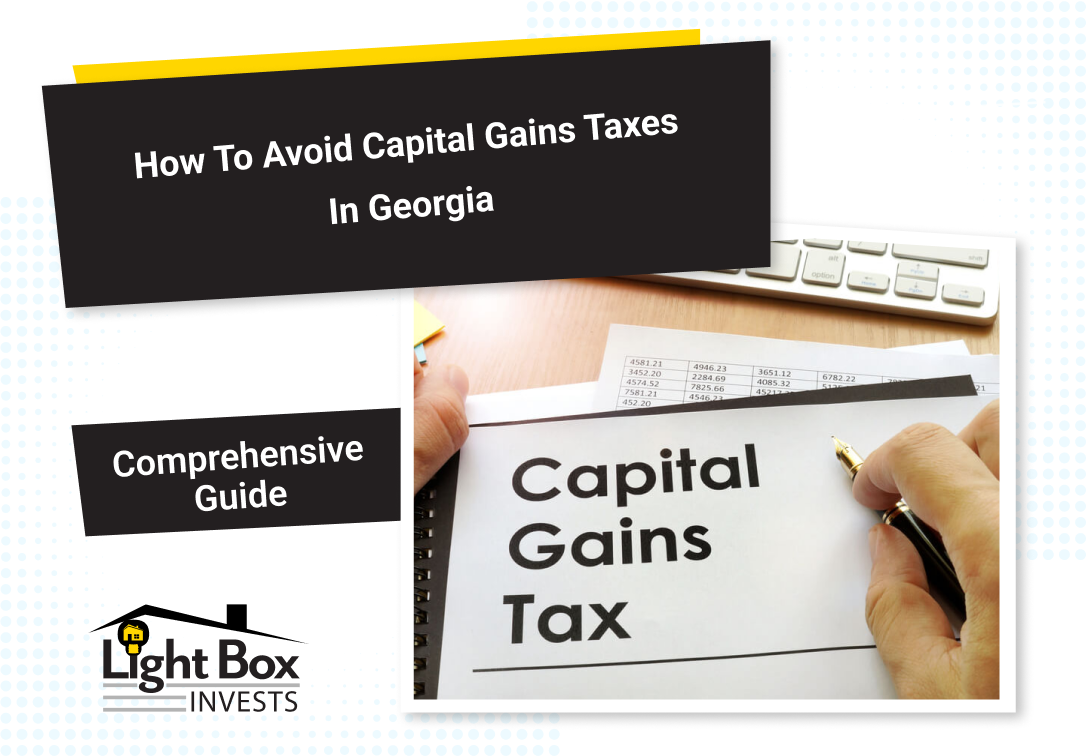
Sellers always look to avoid capital gains tax in Georgia. Selling real estate results in sizable profits, encouraging authorities to impose capital gain tax. The government receives substantial portions of the money you earn. When selling your house in Georgia, consider the impact of capital gain tax to determine if it is worth it.
Moreover, having sound knowledge and a proper understanding of this tax is essential to optimize your potential for savings and profits. You must hire an expert realtor who can provide you with in-depth knowledge to avoid capital gains tax on home sales in Georgia. Explore the legal ways to prevent Georgia capital gains tax and continue reading the blog.
Short-term tax is the capital gains in which the profit originates from the assets (Personal, investment, or capital) retained for a complete or less than a year. The rate of short-term tax capital gains is dependent on your income.
For example, if you have an asset, you purchased it recently and want to sell it in less than a year. This means you will be eligible to pay a hefty amount of tax subjected to this asset. This tax rate varies from 10% to 37%, depending on your filings and income status. This tax rate is higher than long-term capital gains tax.
If you have retained a property for over a year and the profit originated after selling it, it is called capital gain. The tax rate subjected to this profit is called long-term capital gains tax. And its value is significantly lower than its counterpart’s.
Therefore, it is suggested that you keep your assets for a long time to reduce the tax rates. The Georgia capital gain tax can be conveniently calculated from the income obtained after selling an investment. This tax ranges from 0% to 20%, depending upon your profit.
The amount of capital gains tax in Georgia varies depending on the filing status, time passed as an owner, and your residence status, such as secondary or primary. Moreover, this rate is further impacted by your own status, like marriage or single.
Capital gains tax on inherited property Georgia can evaluated by knowing the total amount of capital gains tax Georgia. This is the current value of your property subtracted by the amount of price it is offered while selling.
Your income and tax bracket significantly impact the rate of this tax. It varies from 0% to 20% of your total income. Moreover, it depends on the type of capital gains tax Georgia, whether short-term or long-term.
It is the tax you obtain from selling a real estate property or investment held for more than a year. Georgia capital gain tax can be calculated by differing the selling price of your investment or property from the basis of the total cost basis. This tax rate is based on the categories of capital gain tax. Like short and long-term, and is different for each type.
The capital gains are based on the profit from your salary or investment in Georgia. This amount is highly influenced by selling a property or making a profit from a real estate business. If you have less income or fall under the small brackets of taxes, then you can be exempted from capital gain tax in Georgia.
On the other hand, if you are a business tycoon making significant profit from selling your house or investment, you must pay this tax based on the amount you earned from the sales. This tax may vary from 0% to 20% of your total income.
Consulting Light Box Invests is a practical approach to getting a sound knowledge of capital gain tax on home sales in Georgia. They assist in selling your house without stress and provide a deep insight into this challenging topic. They get a thorough overview of your businesses and investments and make policies to mitigate or avoid them as per the state’s law.
Also, they have a legal team that guides you about each ongoing step that must be avoided or employed to avoid capital gains tax in Georgia. Moreover, they have an expert real estate and attorney team. Who act on your behalf to sell your house while navigating the critical aspects of this tax. You can contact us via online platforms or call to secure and optimize your profit gains.
Knowing and understanding the fundamental aspects concerning capital gains tax in Georgia is important. It lets you make well-curated decisions while investing in or selling a real estate property. This will allow you to save the income generated from profits gained from sales.
Otherwise, you can lose a hefty amount of money for the property or investment retained for over a year. Consulting an expert realtor is essential to avoid capital gains tax in Georgia. Who can guide you in monitoring your investment and avoiding this tax. In addition, they assist in making the informed decision for your investment to reduce this tax implemented by the Internal Revenue Service of Georgia.
The rate of capital gains tax is not fixed for all in Georgia. It depends on the category you fall into, such as short-term and long-term. The tax rate may vary depending on your house's status and the income generated from it.
Capital gains tax is imposed by the Internal Revenue Service of Georgia. This tax is exempt if you live in a house as a primary resident. The tax is imposed at $250,000 if you are a single filer. However, for joint filers, the tax is implemented at the rate of $500,000.
Professional real estate experts and legal attorneys can provide guidance to avoid capital gains tax. Light Box Invests is also a reliable option, offering professional assistance to streamline the selling process and navigate capital gains tax efficiently.
When choosing Light Box Invests, you will receive expert guidance. Their team will navigate the complexities of capital gains tax to save you money and increase your profits.